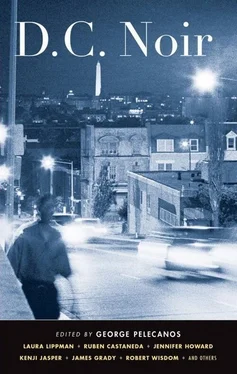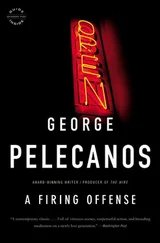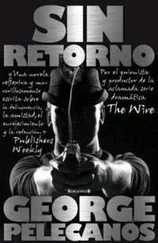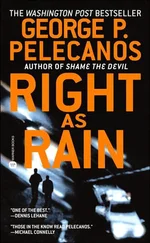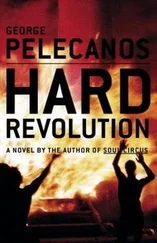The detective noted that Grimes was as cool as a cucumber. No. Cold
“Ice needed someone to save the day,” said Grimes. “It’s too bad I couldn’t help him. But, like he said…” He slipped on his glasses and his magnified eyes stared directly at Mayfield.
Recalling the note Ice Hamilton had left on Rodney Grimes’s car, Detective John Mayfield nodded, a smirk playing at the corners of his mouth.
God don’t like ugly
by Lester Irby
Edgewood, N.E.
The Fantasy Nightclub used to sit on the corner of 14th and U Streets, N.W., in what was then D.C.’s red-light district. Pimps, whores, players, drug dealers, and every other sort of hustler swarming the deadly streets of the Chocolate City frequented this establishment. Even a sprinkle of lawyers and local politicians wandered through from time to time.
The year was 1970. On a warm and pleasant Friday night in September, the folks inside of this enclave of sinful joy were at their partying best. Drinks were being gulped down at a rapid pace. Coke and “doogie” snorted even quicker, and couples gyrated, cutting the rug as the fiery sounds of the Temptations’ smash hit “Ball of Confusion” heated the mood to an even higher pitch.
At approximately 12:30 a.m. the club was filled to its maximum capacity. A boisterous crowd of latecomers stood outside the club’s front entrance pleading with the muscular bouncers to let them in.
“Look, muthafuckas,” said Granite, one of the several mean men hired by the owner to keep peace in the house. “There ain’t no mo’ muthafuckin’ room in the place, so shut the fuck up and get ta steppin’, fo’ I put a hot-ball inside somebody’s ass.”
Granite had a take-no-shit-off-nobody attitude and reputation. He also had pay-me-for-protection partners feared by many, so certain big-time entrepreneur/hustlers readily hired his crew to keep their businesses moving smoothly.
While Granite and the other bouncers were trying to quiet and disperse the crowd, two gorgeous hookers, one black and the other white, left the dance floor and entered the ladies’ room to cool down and freshen up.
Several minutes later, awful cries for help were heard clearly over the loud music — screams eerily vibrating from within the ladies’ room.
Inside the rest room, the five-foot-eight curvaceous and strikingly beautiful Sarah Ward was discovered dead. She hovered over the toilet with her head completely submerged inside the piss-filled bowl. She had been strangled and drowned, and, according to the pathologist who later performed an autopsy, “beaten unmercifully moments before,” as evidenced by multiple facial bone fractures.
Who tortured and killed this beautiful woman?
My name is Felicia “Fee-Fee” Taylor. I attended the Fantasy Club that night. I am the sister of Raymond “Smooth” Taylor Jr., and I was once the number-one girlfriend of the notorious Zack Amos, the flamboyant yet smart, crafty, and feared drug kingpin of our nation’s capital.
My ex-man and brother play major roles in the story that
I am about to tell you, and they are significantly linked to the murder of Sarah Ward. I too am linked significantly to that terrible tragedy, as is undercover police officer Ted Jenkins, who was also present that night. But before I go into the details of that event, I desire and very much need to share some things about myself. I was raised in the Edgewood section of Northeast D.C. Born January 13, 1952, the youngest of two children, I was spoiled rotten by my parents, Raymond and Patricia Taylor, and even more so by my grandma, Nanny Johnson. Along with my older brother (by four years) Raymond Jr., we all resided at 3618 Bryant Street. Both parents worked. My mother was a teacher at Mott Elementary, which my brother and I both attended. My father worked two jobs, construction four to five days a week and an evening part-time job stacking shelves at the Safeway on the corner of 4th and Rhode Island Avenue. We had a three-bedroom home — actually four, because my parents converted a portion of our basement into another bedroom. That was Nanny’s Queendom and she simply loved her space.
I wouldn’t say that we were a middle-class family during that period, but we were close, and that’s saying something. It was extremely hard for black people to move up the economic ladder in the ’50s, yet we lived very comfortably in what at the time was an integrated neighborhood.
Growing up I idolized my older brother. I can still remember when he walked me to school every day in kindergarten. I felt so happy, safe, and confident. Each day when he dropped me off with my teacher, he’d tell me: “Baby sis, you hang in there girl. I’ll be right down the hall if you need me. And you better not cry.”
Even at home I would follow him all around the place. His little shadow I was. Years later, as I thought about our childhood, I concluded that, periodically at least, I was a pain in his ass. Even when he had his friends over or when they were out playing in the streets doing their boy things, I’d make it my business to be a part of the action.
“No, Fee-Fee, stop!” my brother would shout. “Go play with the girls… No, you can’t play stickball — get yo’ butt outta here before I call Mama!”
Then I’d start to pout and cry and cry, and when I couldn’t cry no more, I’d fake the tears until I got my way. I didn’t realize it then, but my brother really knew how to manipulate people. Where I had it in my little child’s mind that I was going to do exactly what my brother and the boys did, my brother would always talk me into something like an “important cheerleader role.” And with my little dumb-ass self, I’d end up on the sideline shouting out some silly “Rahrah-hip-hip-hooray-for-the-gang” bullshit as they played. Yet still loving every moment of it.
I can’t pinpoint exactly when the high affection for my brother began its decline, but I do remember when he dropped out of high school in the tenth grade and started hanging out on the street with his friends instead of being at home. Both matters led to major arguments between him and my father, which months later erupted into a horrendous fight — right smack in our living room, as me, Mama, and Nanny looked on and begged them to stop.
Daddy ended up knocking Junior to the floor — then started shouting at him: “Nigger, get yo’ ass up and get the fuck outta my house. You don’t wanna go to school, you don’t wanna work. Get the fuck out and don’t come back until you get some sense.”
Junior slowly got up off the floor, walked straight out the door, and I didn’t see him again for months. He was sixteen years old at the time and I’d recently turned twelve.
Junior would drift periodically back into the house. During the few weeks or months that he was home, we’d share some good times. But something was missing. Things just weren’t the same. The streets had taken over Junior, and I could see in his eyes how extremely anxious he was to get back out there to do whatever he was doing.
As I entered my teen years, my life became humdrum. My hero Junior was no longer there to play with, learn from, and help me to stay on course. My father continued to work two jobs and was too tired to do anything other than eat and sleep when he got home, and Mama had become much too strict and demanding for me to try to talk over anything with her. Nanny was rapidly aging. I was still her “precious little pumpkin,” even as early stages of Alzheimer’s set in.
Gradually, boys became the excitement in my life. Boys, boys, and more boys. I had to have them. I had a crush on this particular seventh-grade classmate named Richard Armstrong. This was one cool, ultrafine manchild. His coffee-with-a-splash-of-cream complexion fit so well on his handsome face. And his slim, trim yet muscular physique simply turned me on. Plus, he had this roguish, street-smart attitude and confidence about himself — with a sexy-ass swagger that immediately started my juices flowing whenever I saw him. Every girl in my school, Langley Junior High, worshipped this boy, and rumor had it that an estimated ninety-five percent of the young ladies who were virgins upon entering the school all became virginless within ninety days, and that Richard was single-handedly responsible for a whopping percentage of the deflowering. A fact for sure, though, is that I am a statistic in whatever Richard’s true percentage is, because I happily lost — no, gave — my cherry to him at the ripe age of fourteen.
Читать дальше
